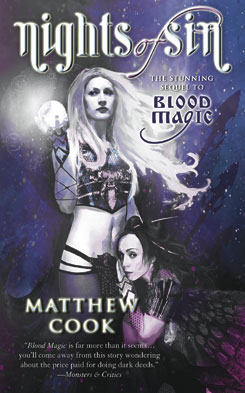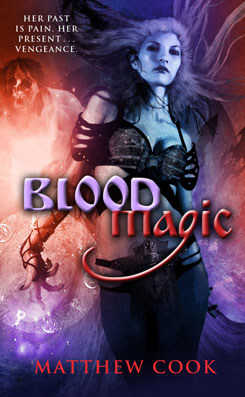(A sidenote: this was the second time that's happened to me with Mike - last year he was cast adrift from a panel in a similar manner, and he took about 45 minutes of his free time to chat with me about the writing biz... Thanks as always, Mike, for your generosity if you're reading this...)
Anyway. While we were sitting there, being the mercenary little proto-author that I am, I decided to pick Mike's brain about agents and the process of finding one. He was very nice about it (I think my spastic thrashings and attempts to sound "like a real author-ish type" amuse him or something), and he ended up giving me about half a dozen names, all of ethical, hard-working professionals, and suggested that I contact them.
He also explained in detail what things that I, as a budding writer, should look for in a potential agent. Hopefully, Mike will soon be sending me an article that he wrote a while back for one of his many publications (which I will reprint here with his permission if he allows it), but in a nutshell, here's what he had to say:
QUESTIONS TO ASK A POTENTIAL AGENT:
- What is the size of the agent's current client list? Will you be one of a hundred clients, swiftly forgotten, or will the agent have sufficient time to dedicate to your career? Bigger can be better, but too big is... erm, never mind. That sounds like a setup for a bad porn joke. You get the drift.
- What does the agency's foreign desk look like? Turns out that a book can generate significant additional profits via international sales, so who does your prospective agent work with overseas to procure those rights?
- What about their Hollywood ties? Books that are optioned for films or other media can generate significant yearly profits simply to reserve the production rights for a studio. Most books are optioned in this manner for years and years even if they're never produced, and every renewal means dollars in the writer's pocket. That being the case, the agency will need to have a good contact on the West Coast. Be sure to ask who that is and research their other deals.
- How to they participate in your work? Do they like to take a "hands-on" approach, suggesting edits that a potential editor might find appealing, or do they expect you to do everything all on your own? In that same vein, does the agent want to manage every facet of your career, right down to the $35 short story you just sold to The Town Drunk, or are they only interested in the bigger stuff? Best to ask this now, rather than wait until a big, fat contract chock-full of teensy-weensy writing is sitting in front of you.
- Most importantly, do you like them? This is a person that you will be trusting with your work, so you'd damn well better like and trust them. You'll be working together very closely for years, so don't disregard the little voice in the back of your head that's telling you that the guy across the table is a shady scumbag. On the other hand, if you have a deal on the table with an agent that you like much better, but it doesn't seem quite as financially advantageous, you still might want to use the person you like better simply for trust and quality of life reasons.
- And last - I didn't get this from Mike, but I've heard it countless times elsewhere - remember that money always flows to the writer, not the other way around! If you run into an agent or an editor that says that they charge a fee to review your work, run away fast! Everyone in the publishing chain makes money off the sales of your work, not on fees that you pay them (well, agents take 15% of your profits, but that's not really the same thing), so if someone's asking you for a check before they'll even look at your work, it's almost certainly a scam. Don't fall for it.



No comments:
Post a Comment